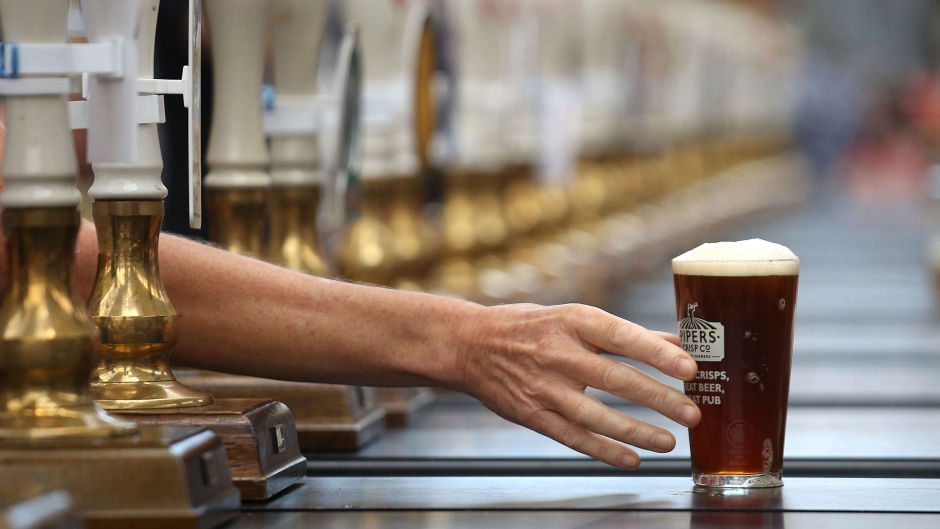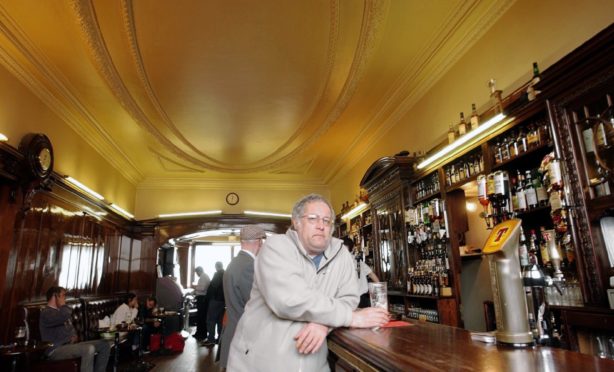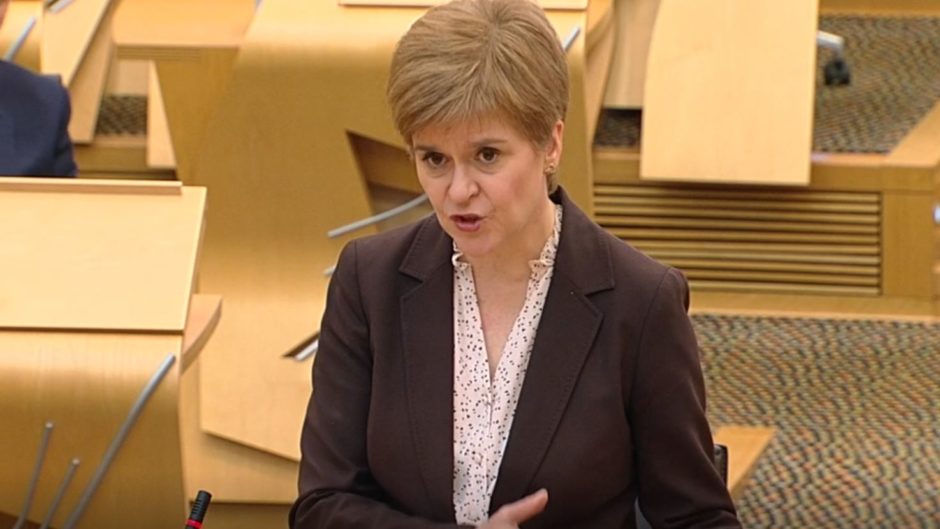Nicola Sturgeon has been accused of leaving Scotland’s hospitality sector “in the dark” over tough new coronavirus restrictions and the specifics of a £40 million emergency fund to support the firms hardest hit.
The first minister announced on Wednesday that money would be made available to support industries left shell-shocked following the introduction of a nationwide indoor booze ban and complete closure of pubs and restaurants in the central belt.
The SNP leader has come under fire from opposition parties for failing to consult with hospitality leaders and trade unions before introducing the new restrictions, and is still to flesh out the details of the promised emergency funding.
Concerns have been raised over whether businesses outside of the central belt, which have not been told directly to close down, will be able to access the support package.
Speaking during first minister’s questions, Ms Sturgeon said her ministers had been speaking to stakeholders in the hospitality and tourism sectors, and hoped to provide further details on Friday for how funds will be allocated.
But her official spokesman was later unable to say when the final details will be announced and said he did not yet have specifics on how the package would work, with ministers hoping to “flesh that out in the coming days”.
The spokesman said he is sure the money would be distributed “in as fair and equitable a way as possible”, adding that the nationwide impact of the measures “will be factored into the distribution of funding that’s been announced”.
Ms Sturgeon also faced a grilling from MSPs over the new restrictions, and was accused of failing to adequately warn business leaders and trade unions of her plans.
Scottish Labour leader Richard Leonard referenced comments by Scottish Chambers of Commerce chief executive Liz Cameron that there had been a “complete and utter lack of consultation with business”.
He said the Scottish Trades Union Congress had also not been consulted prior to the announcement and asked why the first minister had not sought the views of those impacted hardest by the new measures.
“It is clear this is not just about the decision you’ve taken, it’s about how you have taken it,” Mr Leonard said.
“All week there were hints that tighter restrictions were coming. All the while those set to be most affected by the restrictions were kept in the dark.
“Businesses have adapted to the new rules, businesses who were stocking their fridges and paying for supplies for two weeks of ‘staycation’.
“Workers who have followed the guidance to the letter to keep their customers safe and keep their jobs safe but but now see their jobs on the line.
“So, first minister, why did you take this decision without consulting with, sharing the evidence with, and preparing adequate support for those most affected?”
But Ms Sturgeon insisted that despite decisions being made under the strain of the pandemic, she still understood the impact of her decisions on businesses, their employees and customers.

“We consult and talk to stakeholders, business, trade unions, other organisations on an ongoing basis,” she said.
“What we also have to do is assess the evidence on a daily basis and take account of the latest evidence before we come to a decision.
“I do stand every day and update people on the state of our thinking, on the factors we’re taking into account, and the decision-making process we go through.
“These are not normal times and these are not normal decision-making processes, and I know how difficult the consequences of these decisions are for businesses and for individuals. I don’t expect these decisions to be welcome or popular.”
The first minister also confirmed licensed cafes in the central belt will be allowed to remain open to serve food and non-alcohol drinks under exemptions to be introduced to legislations underpinning the new restrictions.
Ms Sturgeon said: “Cafes will be able to open whether they are licensed or unlicensed, as long as they don’t serve alcohol. The regulations that we will shortly bring forward to close certain premises will include a specific exemption for cafes.”


